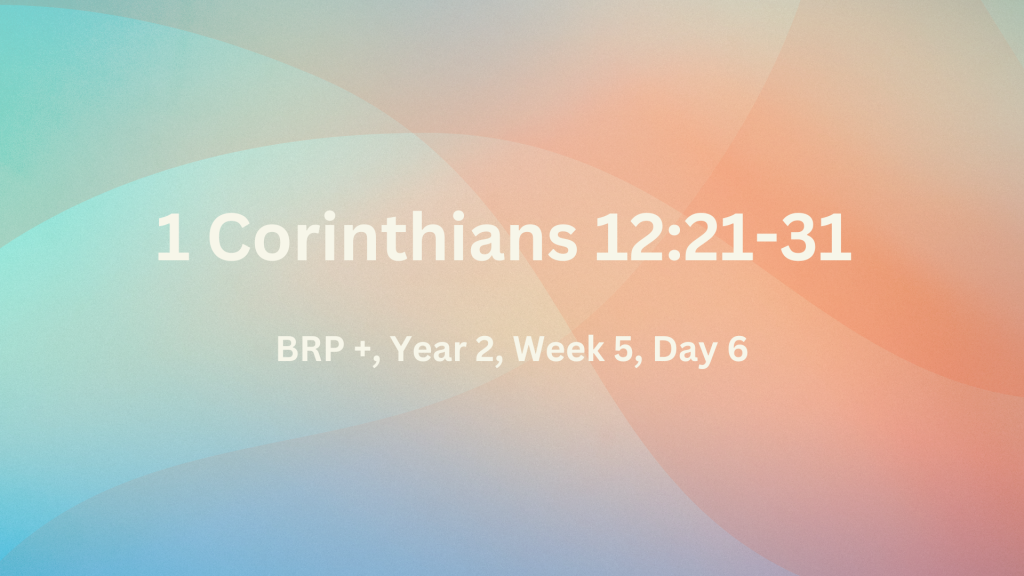1 Corinthians 12:21-31
Q.1. Is there a case for viewing some gifts as superior? What did Paul say about the less visible gifts? Who is responsible for this paradox? How much should we rely on one another? – (1 Cor.12:21-26)
Paul argued from the example of the human body, that all the members of the body have a unique and necessary function. He debunked the idea that all the members should be the same, or that some are not needed (see 1 Cor.12:19-21). He continued – 22 On the contrary, it is much truer that the members of the body which seem to be weaker are necessary; 23 and those members of the body which we deem less honourable, on these we bestow more abundant honour, and our less presentable members become much more presentable (1 Cor.12:22-23). However, this is neither an individual’s choice, nor that of the church, because – God has so composed the body, giving more abundant honour to that member which lacked, so that there may be no division in the body, but that the members may have the same care for one another (see 1 Cor.12:24-25). Paul explained that just as in the body, or a family, what affects one, affects all, so – if one member suffers, all the members suffer with it; if one member is honoured, all the members rejoice with it (1 Cor.12:26).
Q.2. Who decides on the roles and gifts in a church? Why is the order important? Is it possible for everyone to have the same gift? What did Paul mean by seeking the greater gifts? – (1 Cor.12:27-31)
Not only is God sovereign over the universe, He is also Head of the Church, – God has appointed in the church, first apostles, second prophets, third teachers, then miracles, then gifts of healings, helps, administrations, various kinds of tongues (1 Cor.12:28). The order is important because of the equipping role that the Lord has assigned to leaders – and He gave some as apostles, and some as prophets, and some as evangelists, and some as pastors and teachers for the equipping of the saints for the work of service … (Eph.4:11-12 c.f. Eph.2:20). Paul returned to the theme of the diversity of the gifts and asked the questions (The Greek language requires a negative answer) – 29 All are not apostles, are they? All are not prophets, are they? All are not teachers, are they? All are not workers of miracles, are they? 30 All do not have gifts of healings, do they? All do not speak with tongues, do they? All do not interpret, do they? (1 Cor.12:29-30). Paul closed this section on the gifts with this exhortation – But earnestly desire greater gifts. And I show you a still more excellent way (1 Cor.12:31). We have no say in the gifts that God bestows. What could be greater than spiritual gifts? The greater gifts and more excellent way are the sacrificial love that is produced by the Holy Spirit. This is the substance of Paul’s explanation that follows in the next chapter (see 1 Cor.13:1-13).

